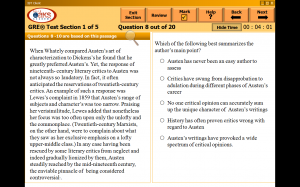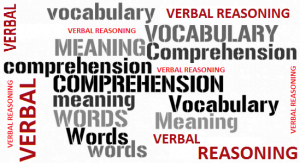So, you are preparing for the GRE test. You know that the Verbal section is going to be demanding. What are the big challenges in the Verbal section of the Revised General GRE?
Challenge #1: Reading Comprehension Passages

First, a bit of good bit of news: the Reading Comprehension passages on the Revised GRE test are short. A Verbal section generally contains 5 Reading Comprehension passages, most which are 20-25 lines long; and one of them may be as short as 3-5 lines. The longest passages are of about 40 lines or so. (See ETS’s introduction to reading comprehension, sample questions and tips)
But Reading Comprehension is never very easy. Firstly, the passages cover a wide variety of topics, most of which are very unfamiliar. Here are some topics that have appeared in the past:

